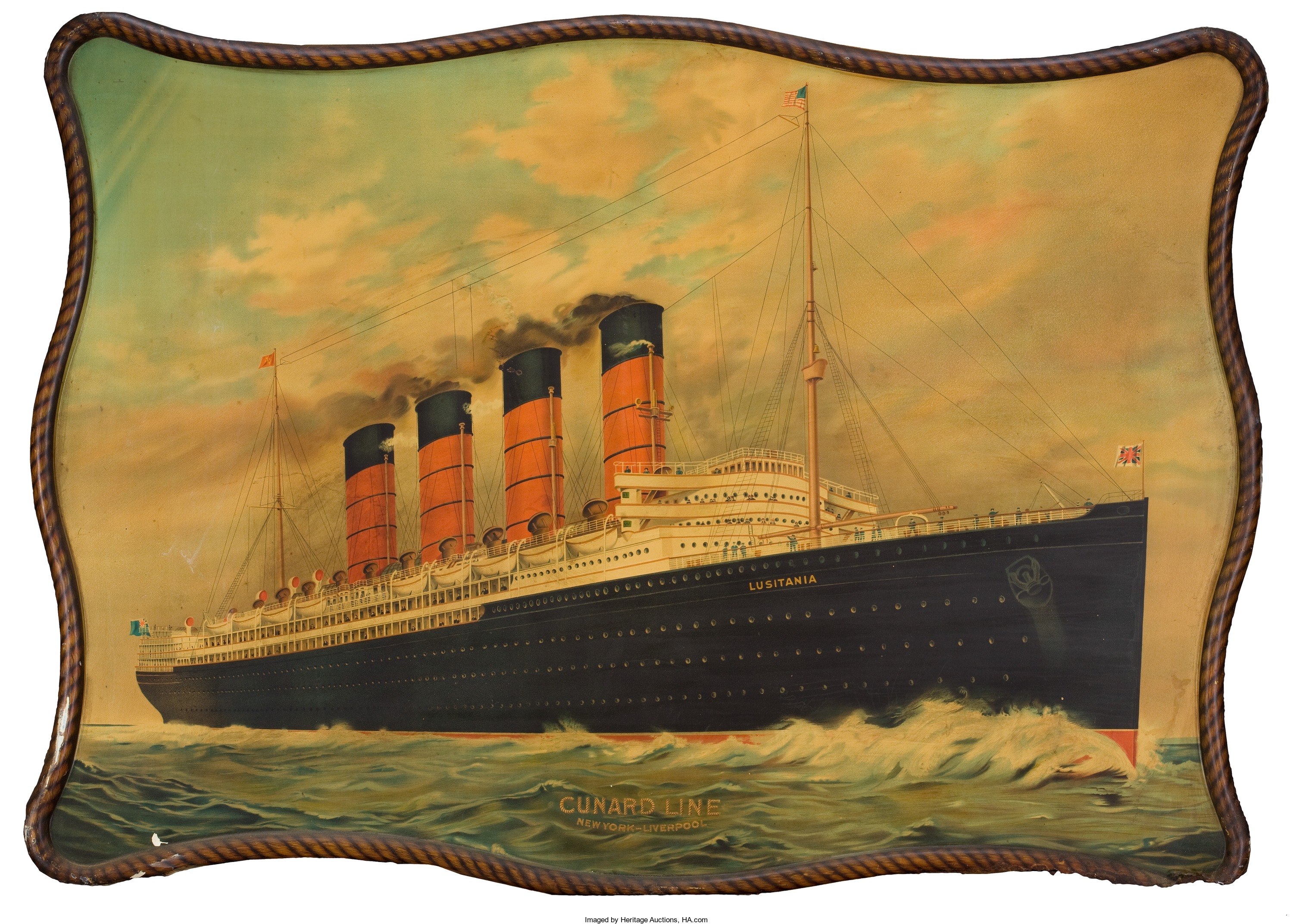
By Jim O’Neal
When World War I erupted, one unassailable fact was that the British Royal Navy was far superior to any of the other combatants. Germany recognized this significant British advantage and realized they would have to rely (heavily) on their fleet of U-boat submarines.
Then in February 1915, the German navy adopted a controversial policy of unrestricted warfare on all enemy ships, including merchant vessels. Their objective was to interrupt transatlantic trade, as well as prevent guns and ammunition shipments to the British Isles.
On May 7, 1915, at 2:12 p.m., the RMS Lusitania, en route to Liverpool, England, from New York City, was hit by torpedoes on her starboard. This was followed by an internal blast, suspected to be the boiler room. The ship sank in less than 20 minutes. All 1,200 passengers, including 128 Americans, were either killed or drowned. The German Embassy in Washington, D.C., had published warnings in several New York newspapers reminding prospective passengers of the dangers involved in transatlantic travel. One such notice, in fact, had appeared adjacent to a Cunard Line advertisement for the return trip of the Lusitania.
President Woodrow Wilson sent a strongly worded protest to the German government demanding an apology, but the Germans claimed they were justified since the Lusitania was secretly carrying armaments to the British. Secretary of State William Jennings Bryan resigned because he believed Wilson was leading the country to war. The U.S. had maintained a strict policy of neutrality since Americans were leery of involvement in a foreign war.
However, on Feb. 1, 1917, the Germans resumed their aggressive policy of unrestricted U-boat warfare and two days later, Wilson announced the U.S. was breaking all diplomatic relations with Germany. The American liner Housatonic was sunk by a U-boat just hours later.
Finally, on Feb. 6, 1917, the United States formally entered World War I, “the war to end all wars” … except for all the other ones that would follow.
 Intelligent Collector blogger JIM O’NEAL is an avid collector and history buff. He is President and CEO of Frito-Lay International [retired] and earlier served as Chairman and CEO of PepsiCo Restaurants International [KFC Pizza Hut and Taco Bell].
Intelligent Collector blogger JIM O’NEAL is an avid collector and history buff. He is President and CEO of Frito-Lay International [retired] and earlier served as Chairman and CEO of PepsiCo Restaurants International [KFC Pizza Hut and Taco Bell].
